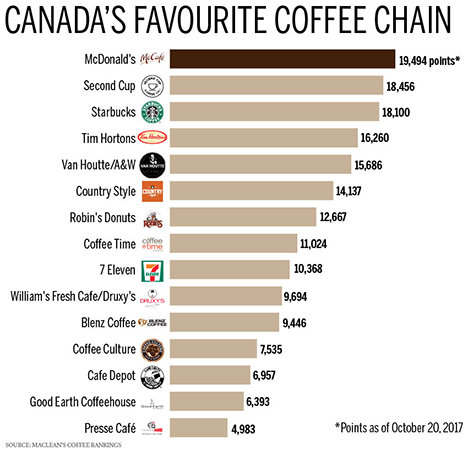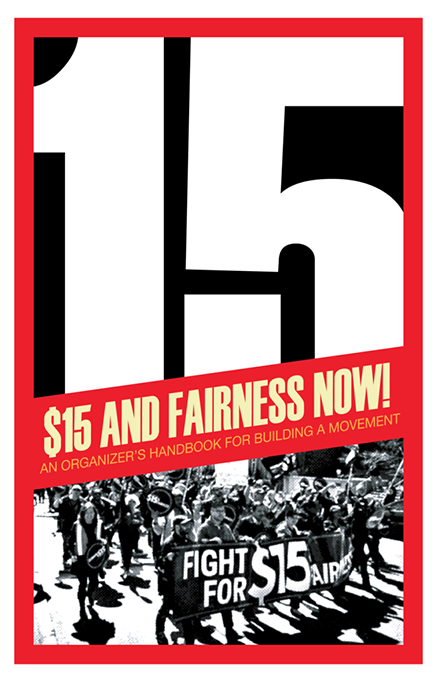DONUT A-HOLES
Tim Hortons heirs cut their workers’ pay to protect their own big paydays

JERI-LYNN HORTON WOULD FAIL KINDERGARTEN. She refuses to share.
The donut empire heiress will keep her millions in profits all to herself this year—again. She made sure of that by turning a pay increase for her workers into a pay cut.
Horton has decreed workers at her Tim Hortons outlet in Cobourg, Ontario will not take home any more money—despite the new law in Ontario that raises their $13 an hour rate to the new legal minimum wage of $14 per hour. Horton will cut her workers’ paid breaks and other benefits to offset the increase in pay required by the new law.
One worker figured out the cuts will actually make their biweekly paycheque lower, by $51, than it was before the minimum wage law came in—a law intended to raise wages.
“I feel that we are getting the raw end of the stick,” said one front line employee who asked to remain anonymous out of fear of losing their job.
Horton and Ron Joyce Jr. (the daughter and son of the chain’s co-founders Tim Horton and Ron Joyce) are wife and husband and co-owners of the Cobourg outlet. They told their workers of the cuts in a letter just days before the $14 minimum wage became law.
The letter told the workers:
- Paid breaks were eliminated
- 100% employer coverage of dental and health benefits will be reduced to 75% for workers with between six months and five years service and to 50% for workers with more than five years of service
- incentives for working on their birthday were cancelled
- incentives for working six months without taking a sick day were cancelled.
Making the workers take the hit
The Joyces pull no punches about who to blame. And it’s not them.
They lay the blame on the government and the Tim Hortons corporation itself. The letter states: “These changes are due to the increase of wages to $14.00 minimum wage on January 1, 2018, then $15.00 per hour on January 1, 2019, as well as the lack of assistance and financial help from our Head Office and from the Government.”
The letter is signed “Sincerely, Jeri, Ron and Lisa.”
“I don’t understand why you can take it away,” said the worker. “Sounds like you are penalizing your staff because the government is trying to help your staff.”
The Joyces are not alone in their effort to clawback money from their workers.
An employee at a Whitby, Ont. Tim Hortons says workers found notes posted in the staff bathrooms at all six operations of one franchise owner stating that as of Jan. 1, the owner could no longer afford to pay his workers for two 15-minute breaks per shift.
The full-time employee said not paying her on her breaks means she will lose $2,000 dollars annually—about what she would have gained under the new minimum wage law.
Not popular with the public
Public response to the Tim Hortons action against its workers has not been good.
James Pickersgill, a Cobourg resident, posted a picture of the document announcing the pay cuts on his Facebook page. It was shared more than 600 times in less than 24 hours.
“People are talking about boycotting their stores, and saying ‘I’ll go to another [Tim Hortons], but I won’t go to that one,’” said Pickersgill.
In Ottawa, the District Labour Council has created a “hotline” for workers to call and report any actions against them due to the new minimum wage law.
ODLC President Sean McKenny says “to punish workers by taking away breaks and reducing other benefits...is just wrong.”
Workers can call 613-233-1251 or email minwagebully@ottawalabour.org to report an employer who may be cutting benefits or incentives because of the wage increase. McKenny says all tips will be verified by the Labour Council and the names of anyone calling or emailing will be kept confidential.
The ODLC plans to publish the names of businesses that “are in fact taking away or reducing a worker’s break time, benefits or other incentives.”
Awash in profits
Owning a Tim Hortons is a lot better than working for one. Ron Joyce Jr’s father, the co-founder of the donut chain empire, is said to be worth $1.4 billion.
Restaurant Brands International owns Tim Hortons, Popeyes and Burger King. Total revenue from all three chains increased to $1.13 billion in the three months ended June 30. In October 2017 RBI reported its latest quarterly earnings increased nearly six per cent.
All of it is good news for Tim Hortons shareholders. But still not good enough for the Joyces, who could not find a way to keep from cutting their workers' wages.
Still, their strong bottom line has not kept the Tim Hortons corporation free from problems.
Franchise owners get a taste of their own medicine
Over half of the chain’s roughly 1,100 franchisees have now joined the Great White North Franchisees Association (GWNFA) a group that is more than a little dissatisfied with their treatment by the parent company.
GWNFA filed an $850 million class action lawsuit against RBI in October 2017. The suit alleges bullying and intimidation on the part of the fast food operator.
The suit followed a move by Tim Hortons’ corporate parent, to seize the franchise operations of all nine of GWNFA’s board members. The franchisee group also alleges that the company is interfering with their legal right to form an association.
The GWNFA franchisees had already filed a $500-million class action lawsuit in June alleging head office has mismanaged their advertising fund and was gouging them on the costs of the products they are required to buy from the corporation.
Tim Hortons jilted by Canadians
Another problem for the chain is that its love affair with Canadians is over. A recent poll done by Macleans magazine showed McDonalds is now Canada’s favourite coffee shop. Tim Hortons has slipped all the way down to fourth place.
Here’s what the results showed as of October 20:

Things are not likely to get better for Tim Hortons in Ontario any time soon. The parent corporation has already lashed out at what they call “rogue” franchisees. Even as more operators are demanding more takebacks from their workers, such as no more free coffee and having to pay for their uniforms.
The potential for damage to the parent company and its franchisees over how it handles minimum wage increases can only increase. Alberta, Quebec and Prince Edward Island are expected to raise the minimum wage in their provinces by the end of 2018.
- 30 -

Order booklet at
editors@rankandfile.ca











Add new comment